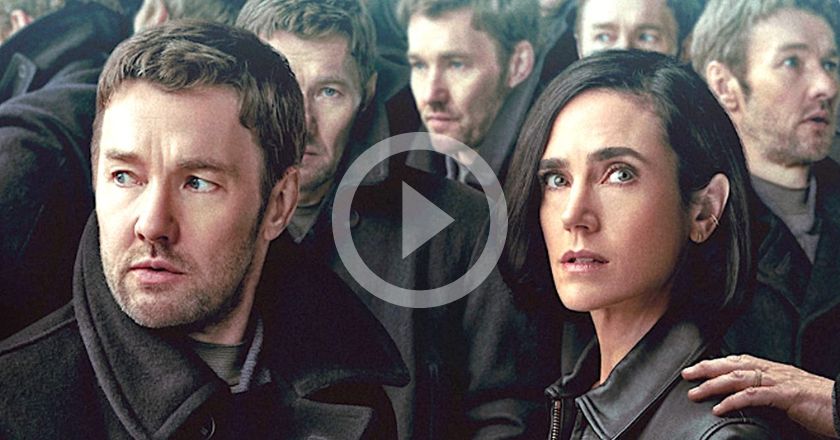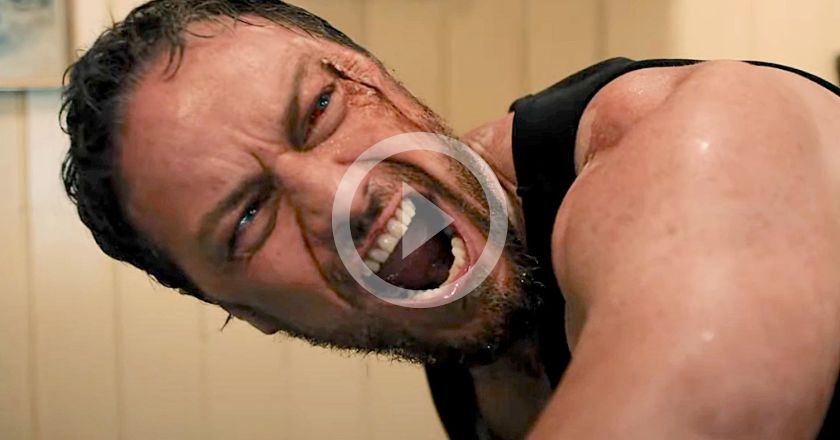
Amongst a slew of remakes, sequels and superhero franchises, it’s all too rare to come across a thoughtful family drama that is as heart-warming as it is darkly funny. From the title alone, one could easily mistake Captain Fantastic as another superhero movie. But this is a beautiful, earnest film filled with idealism and spirit, and an eccentric hero at the centre; a father whom has devoted his life to training his six children to be strong, self-sufficient, free thinkers.
Ben (Viggo Mortensen) has forfeited a conventional existence in favour of raising his family out in the wilderness of the Pacific Northwest, liberated from the everyday burden of technology and oppression. Any typical day begins with rigorous physical training, hunting, studying philosophy and reading classics by the fire at night. Ranging from the ages of six to eighteen, Ben’s uniquely named sons and daughters are astonishingly bright philosophers, mature well beyond their years. Their self-built paradise is disrupted when Ben receives news from his sister (the ever-fantastic Kathryn Hahn) that his wife, Leslie (Trin Miller), has committed suicide while she was being treated for bi-polar disorder. Leslie’s stern, Christian father, Jack (Frank Langella), resents Ben and forbids him from attending her funeral if he wants to avoid arrest. Disgusted that Leslie’s own parents could ignore her Buddhist beliefs and final wishes, Ben and his children set out on their joint mission to “Save Mom”, an operation that becomes the film’s driving force.

There is something awfully admirable about the way Ben has been raising children, ingraining in them a deep disdain for Corporate America and an appreciation of nature. Ben does not coddle his children, but challenges them in ways that build strength and character. He encourages them to voice their opinions and cast aside banal descriptors like “interesting” when discussing the complex themes of Lolita. Ben’s complete openness with his children may seem entirely foreign to audiences. When he informs his children of their mothers’ death, he doesn’t pull a single punch ““ he flat-out tells them that she killed herself and doesn’t once try to offer them platitudes. It’s a brutal moment, but there’s such honesty in the way Ben gives his children permission to own and express their feelings while knowing all the facts. In the hands of an inept actor, the scene would ring too harsh, but Mortensen plays it beautifully with the right amount of anguish and candour.
Ben’s parenting tactics are naturally called into question as the family try to temporarily assimilate back into the ‘real world’ as they venture to New Mexico for Leslie’s funeral. They briefly take up residence with Harper, her husband, Dave (Steve Zahn), and their two children. Aside from Zaja (Shree Crooks) asking his aunt how she killed the rotisserie chicken the family enjoys for dinner, the film doesn’t lean too heavily on the fish-out-of-water trope, and fares far better for it. Instead, tension arises between Ben and Harper’s conflicting parenting styles, a recurring point of contention between the siblings. Although Harper does make a valid point that the children should be registered in school, it’s so easy to be dissuaded when Ben trots out his eight-year-old son to perfectly articulate his interpretation of The Bill of Rights while Harper’s adolescent sons can barely form a sentence on the subject.

Scenes such as these are effective in coaxing the viewer to trust Ben’s instincts as a parent, but there are regular reminders that Captain Fantastic himself is all too human and even his children are attracted to a world alien to their own. Ben’s eldest Bo (George MacKay) wrestles with his familial loyalty and his desire to attend one of the many Ivy League Colleges he was secretly accepted to, flirting with the idea of living a life outside of what he has gleaned from books. While Rellian (Nicholas Hamilton) is far more overt with his aversion to his father’s practices, notably after he sprains his wrist rock climbing in the forest and when he questions why the family must celebrate “Noam Chomsky Day” in place of traditional Christmas. While it does occasionally feel as if the film is frowning upon us vapid millennials, this preaching does not go unrefuted, making it difficult to decide which lifestyle is better for children in the long run.
Captain Fantastic undoubtedly belongs to Viggo Mortensen as the nurturing, strong-minded patriarch of the family, but the film is bursting with tremendous, mature performances from its young cast; the aforementioned George MacKay and Shree Crooks, as well as Samantha Isler and Annalise Basso as Kielyr and Vespyr respectively. One of the film’s standout moments includes an incredible rendition of “Sweet Child of Mine,” sung primarily by Isler and Basso’s characters as a tribute to their mother.
This film may sadly be seen by only a handful of the viewers it deserves. With its derision of modern technology and society, Captain Fantastic isn’t the type of film that attracts mainstream audiences, even if it damn well should.
THE REEL SCORE: 9/10







